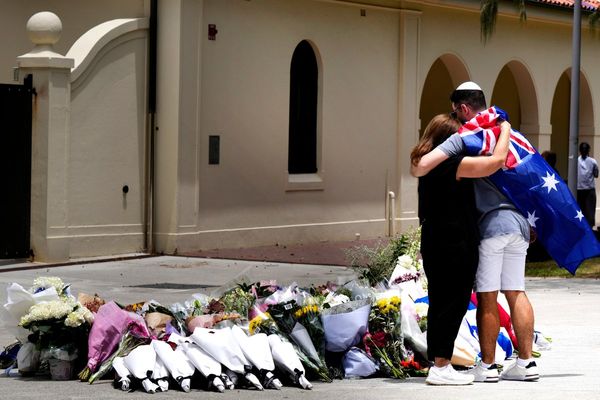
Costa Ricans vote on Sunday for a new president in what looks primed to be a close contest between a former leader promising continuity and a pugnacious economist who could pull the country down an anti-establishment path.
Former World Bank official Rodrigo Chaves has shaken up the race in one of Latin America's most politically stable countries after confounding expectations to place runner-up in a first round of voting in February.

Taking a confrontational approach to the media and eyeing referendums to sidestep parliament, Chaves has drawn comparisons with other anti-establishment leaders such as former U.S. president Donald Trump, Mexico's Andres Manuel Lopez Obrador, Jair Bolsonaro in Brazil and El Salvador's Nayib Bukele.
A University of Costa Rica opinion poll on Tuesday put Chaves just ahead going into the second round run-off with 41.3% support, while Jose Maria Figueres, a centrist who was president of the country from 1994 to 1998, had 38.3%.
A victory for Chaves, whose lead has been narrowing, could mark an end to decades of relative moderation in Costa Rican politics just as the country has called in support from the International Monetary Fund (IMF) to help cope with rising debt.
"The political climate is in a critical state, it seems to herald the exhaustion of Costa Rica's social, economic and political model," said Ilka Treminio, director of the Latin American Faculty of Social Sciences (Flacso) in Costa Rica.
"Figueres proposes dealing with things institutionally, from within in a more traditional style, and Chaves, from the outside, with his defiant, politically incorrect rhetoric and tone typically associated with populist leaders," she said.
Since World War Two, Costa Rica has achieved sustained economic growth, rising human development and universal health coverage, becoming one of the most stable democracies in the Americas.
But its economy, which leans heavily on tourism and environmentalism, began to show cracks around the turn of the millennium that the COVID-19 pandemic later exacerbated.
Poverty afflicts nearly a quarter of the 5.1 million Costa Ricans, and unemployment has climbed from under 6% to almost 14% in the past two decades. Meanwhile, the budget deficit topped 5% of gross domestic product (GDP) in 2021, giving the country a debt/GDP ratio of 70.3%, the highest in Central America.
Chaves, who has run on a Trump-flavored motto of "Let's make Costa Rica the happiest country in the world again," has played on his years of experience with the World Bank to portray himself as a safe pair of hands for the economy.
However, critics have questioned his plan to keep down the price of basic staples by decree, and his vision of governing through referendum to get around a fragmented legislature.
Figueres, of the National Liberation Party (PLN), has cast himself as the responsible choice, describing a vote for Chaves as a "jump into the void." But he and his party have seen their popularity hurt by allegations of corruption, which he denies.
With 19 of 57 seats, the PLN won the largest representation in the parliament during the voting in February.
GOVERNABILITY
The fact that no party has a majority means the next president is likely to face a tough job governing, as well as carrying out the reforms thrashed out with the IMF to access a $1.78-billion financial package, analysts say.
Chaves, who has described critical media as "scoundrels," briefly served as finance minister of outgoing President Carlos Alvarado. Alvarado is not allowed to seek immediate re-election.
Chaves' campaign has been buffeted by sexual harassment allegations from his time at the World Bank, which he denies.
Neither candidate is especially popular.
A poll published by the university last week showed 73% of respondents did not want either one of them to win.
"Both just air the other's dirty laundry and you don't hear them proposing serious things," said Yorleny Chacon, a 41-year-old bank worker in San Jose. "I was going to vote for Chaves, but I think he's really arrogant."
(Reporting by Alvaro Murillo in San Jose and Diego Ore in Mexico City, Writing by Kylie Madry; Editing by Dave Graham and Rosalba O'Brien)







